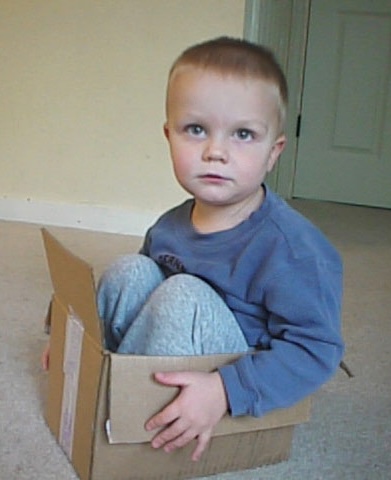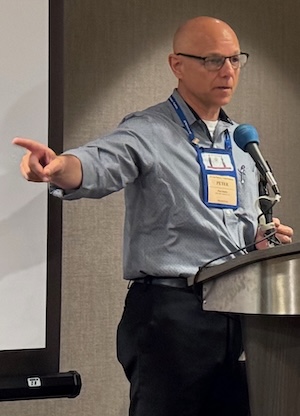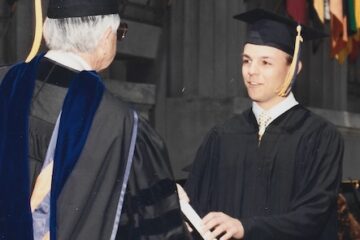How to quiet your high achiever guilt
Nearly every high achiever thinks they’re not getting enough done. That’s because every time they accomplish something worthwhile, that success comes at the expense of some other worthwhile thing.
When you have 15 important things to do and enough time to do just 13 of them, the two that get dropped will let you know about it. They become fuel for the guilt engines constantly running in the background of your mind.
The result is that you can’t feel good about any of the 13 things you did. You start to resent those 13 things. In fact, you start to resent all 15 of the things because whenever you give attention to any one of them, you feel you’re stealing time from 14 others. The one getting the attention is harming the other 14, and the other 14 are trying to drag your attention away from the one. It’s lose-lose.
The many roles of a high achiever
Most high achievers don’t think of themselves as high achievers. They often think of themselves as failing, not as achieving. The guilt engines make sure of that.
Even when you do celebrate an achievement, there’s always a “yes, but…” gnawing at your conscience.
A few weeks ago, a new client told me about his feelings of failure. He told me about his contentious divorce, difficulties with his three young kids, a career that felt stalled, a decline in his own health and fitness, the repairs his house needed, the loss of hobbies he used to enjoy…
And then there was this pile of boxes in his garage. Full of things to be donated, they had sat in his garage for more than six months, gnawing at him. He told me they had become a symbol of all his failures.
So he committed to getting rid of them before our next session. It was the one thing he said he truly wanted to do before we met again. A small step, but an important one.

When I saw him two weeks later, he told me the boxes still sat in his garage.
His guilt engine was redlining, and it was working so hard that it had gone from “you are failing to donate these boxes” to “you are failing at everything.”
As we talked about all that was going on in his life, I noted a subtle pattern in his language.
High achievers don’t talk about the dark side
Like me, this client is a positive, can-do kind of high achiever. A solution seeker. An optimist at heart.
So all of his talk was proactive and solution-oriented.
Most coaches love that kind of thing. Yes! we’ll cheer. SMART goals! Action plans! Prioritization of work! Time blocking!
I sensed, however, something bigger needed to be addressed. Underneath all the positive, can-do language was a tone that told me action planning wasn’t going to solve his real problem. He was ignoring the dark side of his situation, and that was going to cause trouble later.
How high achievers become self destructive
My client was starting to resent all the wonderful things in his life. No matter what he gave his attention to, the guilt engine told him he was stealing time from everything else he valued.
He couldn’t focus on his stalled career because he had kids to raise, he couldn’t focus on his own health because he needed to accelerate his career, and he couldn’t do hobbies he loved because he needed to focus on his health.
Instead of acknowledging the fact that that there was literally too much to do in the time he had, a cycle of blame had emerged that, if left unaddressed, would likely spiral into deep resentment.
Not only have I seen that happen before in friends and colleagues, and not only is it prevalent in caregiving, but I have experienced it myself.
In the worst cases, that blame cycle can turn into something that feels like self preservation but looks self-destructive to other people. And it may actually be self destructive if it’s not turned around.
Quiet your high achiever guilt engine
We had a very useful, open, enlightening conversation after I shared my observations with him. It did not take him long to reverse the blame cycle and quiet those guilt engines when he acknowledged that perhaps the real problem was not his inability to get everything done but rather the fact that there was literally too much for any one person to get done adequately.
He realized, for the first time, that there were things he could delegate and things he could let slide. This didn’t fix his life—those hard decisions are still ahead of him, and I’m sure the guilt engines will fire up again—but it opened up whole new paths forward he simply hadn’t been seeing before.
That may not seem like a super revelatory insight to someone reading a blog post, but when you’re in the middle of things, it can literally change your entire outlook and unblock your imagination.
The situation you’re in goes from one of blaming yourself and resenting all the things you love (which takes away your agency by turning you into a victim) to one of objectively understanding the tradeoffs and consequences (which puts you in control of intentional decision-making).
Make decisions with clarity and confidence
Quieting your high-achiever guilt engine is just the first step. Once you are in a headspace where you can make intentional decisions from a place of objectivity, you then have to learn how to make those decisions.
Part of that is being clear about the real and likely consequences of those decisions—as free of fear-based bias and magical thinking as possible.
Another part is to understand your core values. We all know about choosing the lesser of two evils, but high achievers are more often faced with choosing the greater of two goods. In my opinion, that can be harder. When multiple goods are in competition with each other, which ones will you select to win and which will you select to lose?
Finding peace while remaining a high achiever
I have learned how to quiet my own guilt engines over the years. Those guilt engines still exist, and they sputter to life more often than I’d like to admit, but I know my hand is on the lever and it’s my choice to give them fuel or throttle them back in any given situation.

One result is that I have embraced the idea of having things left undone at the end of every day. Another is that I have let some things go from my life. I think I’ve also done a pretty good job of transitioning from one season of life to the next, and finding what “enough” means for me.
I am more at peace and living a wonderfully fulfilling life, yet I am still a high achiever. I’m super productive, supportive of those in my life, helping others, and working hard. I’m making the most of every day, all within my own parameters.
Which, I think, is kind of the goal in life.
Connect with me
Schedule a consultation session now or drop me a line.
Identify your core values with this free worksheet. Many of my clients find it surprisingly eye-opening. Get it here.
Download my chapter from RELIT

RELIT: How to Rekindle Yourself in the Darkness of Compassion Fatigue gives practical, relevant, actionable advice on avoiding and overcoming compassion fatigue and caregiver burnout. As a professional coach, I have to pay close attention to self-regulation and my own personal resilience. My chapter explains the things I do to stay centered and stay focused so I can give every client my best, every time.
Download my chapter for free: Show up. Try hard. Be nice.
Or just go buy the whole book. It’s worth it.


